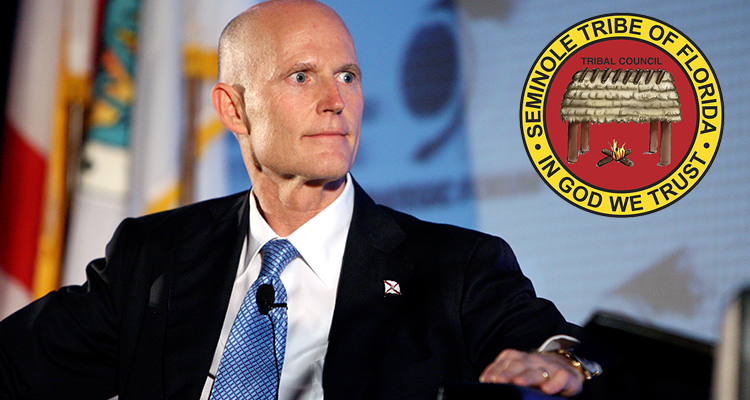In Florida, the casino-operating Seminole Tribe Of Florida has reportedly joined with state officials in asking a Tallahassee judge to reconsider a ruling that they contend could lead to thousands of unregulated slot-like machines being placed in bars, malls and convenience stores.
According to a report from the Tallahassee Democrat newspaper, at issue is the legality of a “pre-reveal” game known as Version 67, which resembles a more traditional slot but requires punters to press a “preview” button before play can be initiated.
The machines manufactured by Blue Sky Games had been placed at locations across Florida under a lease agreement with Jacksonville-based Gator Coin Incorporated but were soon confiscated by the Florida Department Of Business And Professional Regulation after officials decided the units violated the state’s rules on gambling.
However, Blue Sky Games and Gator Coin Incorporated reportedly challenged these seizures in court and March 9 saw Judge John Cooper from the Second Judicial Circuit Court Of Florida rule in their favor. The newspaper explained that the judge decreed that the machines did not violate the state’s rules on gambling because they were neither a game of skill or chance as their “preview” function always allowed players to know the outcome of a game before spending any money.
In his ruling, Cooper reportedly concluded that “the outcome of the game is always identical to the results shown” and “skill is not utilized in the game because there is nothing a player can do to change the outcome”.
But, the Seminole Tribe of Florida reportedly joined with the Florida Department Of Business And Professional Regulation on Friday in asking Cooper to think again. The tribe, which runs the Seminole Hard Rock Hotel And Casino Hollywood and the Seminole Hard Rock Hotel And Casino Tampa along with four smaller casinos in the state, signed a gaming compact in 2010 that gave it the exclusive right to offer slots outside of Miami-Dade County and Broward County and it allegedly declared that the recent ruling could lead to a proliferation of “pre-reveal” games throughout Florida.
“The offering of Blue Sky Games and any similar gaming system to the public is a significant infringement of the tribe’s right to exclusivity and threatens to disrupt a contractual relationship between the tribe and the state that has been highly beneficial to both parties,” read a statement from tribal attorney Barry Richard.
Richard further reportedly wrote that the decision “could lead to an erroneous result that would have massive consequences and cause the tribe and the state to lose multi-billions of dollars” before he added that the compact-related issue had not been raised by the state before Cooper made his decision.
Last week saw Marcellus Osceola, Tribal Council Chairman for the Seminole Tribe Of Florida, send a letter to Florida governor Rick Scott advising the Republican that state and federal courts in other jurisdictions have defined the “pre-reveal” games as illegal slots that had constituted “a clear violation” of the tribe’s exclusivity.
“The [Seminole Tribe Of Florida] is advised that a significant number of these games are being operated in Florida based on this decision and that thousands of additional games are likely to be added in the near future,” wrote Osceola. “Slot-style type games materially the same as these have been held by federal and state courts in other jurisdictions to be illegal slot machines and are a clear violation of the [Seminole Tribe Of Florida’s] negotiated exclusivity as set forth in its gaming compact with the state, which guarantees exclusive operation of slot machines outside of Miami-Dade [County] and Broward [County] in exchange for monthly payments. Having provided notice of this serious violation of the [Seminole Tribe Of Florida’s] negotiated exclusivity, the [Seminole Tribe Of Florida] trusts that the state will take prompt action to remedy this violation.”
In its seven-page request filed on Friday, the Florida Department Of Business And Professional Regulation reportedly asked for a re-hearing and asserted that Cooper had erred in focusing on whether the player’s activity amounted to gambling. It wrote that the issue “poses an entirely separate question from whether the machine that player is playing constitutes a slot machine or device” as what “the player knows or does not know about any given outcome is irrelevant”.
“Indeed, a slot machine is a slot machine regardless of whether or not someone is playing it,” read the motion from the Florida Department Of Business And Professional Regulation.


